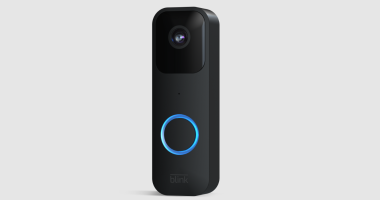
Artificial intelligence is everywhere, and now a group of developers have created AI software that can tell whether you are likely to die from Covid-19 using health data.
University of Copenhagen researchers fed a computer program with health data from 3,944 Danish COVID-19 patients, as well as any underlying conditions.
They then trained it to look for patterns in a patients’ prior illness to determine the risk factors and potential outcome from Covid-19 and found that BMI, age and being male were the highest risk factors when it came to the likelihood of dying.
The results show that AI can, with up to 90 per cent certainty, determine whether an uninfected person will die of the disease if they are unlucky enough to catch it.
Results from the new tool could help health officials determine who should be at the front of the line for a limited supply of vaccines, said lead author Mads Nielsen.


Artificial intelligence is everywhere, and now a group of developers have created AI software that can tell whether you are likely to die from Covid-19 using health data (stock image)
Once admitted to the hospital with Covid-19, the computer software can predict with 80 per cent accuracy whether the person will need a respirator, the team found.
Certain diseases and health factors have a greater influence on whether a patient ends up on a respirator than others after being infected, according to the study.
In order of priority these are: BMI, age, high blood pressure, being male, neurological diseases, COPD, asthma, diabetes and heart disease.
The group at the greatest risk of dying from coronavirus if they contract the disease are old, fat white men with high blood pressure, according to the researchers.
For diagnosed patients, age and BMI were among the most relevant features for predicting hospital admission and ventilator treatment, they found.
Hypertension – high blood pressure – was the most important feature for predicting ICU admission, and indeed an important feature for all models.
For patients that had to be admitted to hospital the most relevant drivers of disease progression were age, BMI, hypertension and the presence of dementia.
‘We began working on the models to assist hospitals, as during the first wave, they feared that they did not have enough respirators for intensive care patients,’ explained Professor Nielsen.
‘Our results demonstrate, unsurprisingly, that age and BMI are the most decisive parameters for how severely a person will be affected by COVID-19’ he said.
‘But the likelihood of dying or ending up on a respirator is also heightened if you are male, have high blood pressure or a neurological disease,’ explains Mads Nielsen.


The AI was trained it to look for patterns in a patients’ prior illness to determine the risk factors and potential outcome from Covid-19 and found that BMI, age and being male were the highest risk factors when it came to the likelihood of dying. Stock image
For hospitalised patients requiring ICU admission compared to hospitalised patients without ICU admission, only male sex, BMI, dementia and hypertension differed between patients.
ICU-admitted patients were furthermore more likely to be smokers, older and male, the team discovered.
Those who died of the disease were also more likely to suffer from hypertension, diabetes, heart disease, heart failure, arrhythmias, stroke, COPD or asthma, osteoporosis, dementia, mental disorders, neurological disease, cancer, chronic kidney failure and use of dialysis.
‘For those affected by one or more of these parameters, we have found that it may make sense to move them up in the vaccine queue, to avoid any risk of them becoming inflected and eventually ending up on a respirator,’ says Nielsen.
The team behind the study are now working to update their model with fresh data from the latest wave of coronavirus in Denmark.
They hope that artificial intelligence will soon be able to help the country’s hospitals by continuously predicting the need for respirators.
‘We are working towards a goal that we should be able to predict the need for respirators five days ahead by giving the computer access to health data on all COVID positives in the region,’ says Mads Nielsen.
‘The computer will never be able to replace a doctor’s assessment, but it can help doctors and hospitals see many COVID-19 infected patients at once and set ongoing priorities.’
The findings have been published in the journal Scientific Reports.









